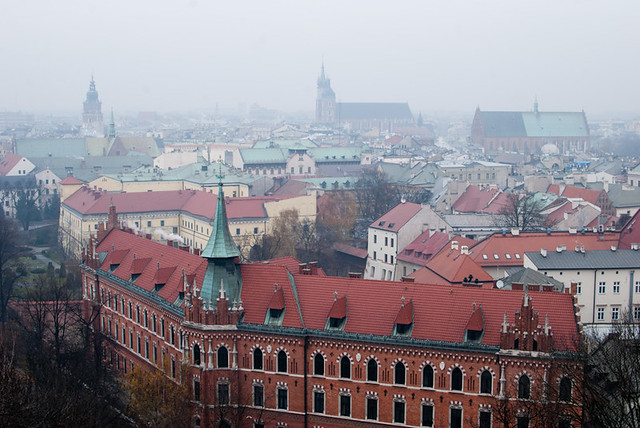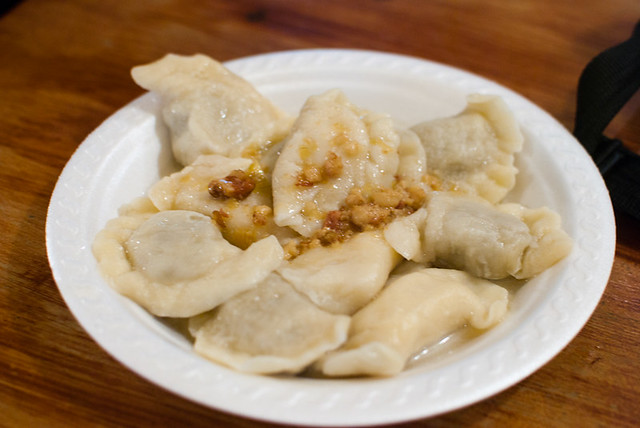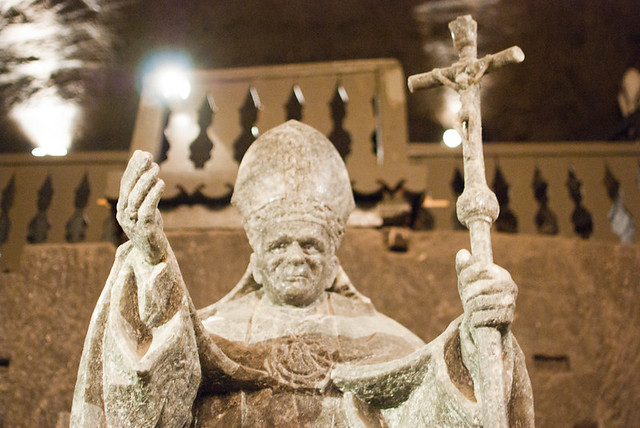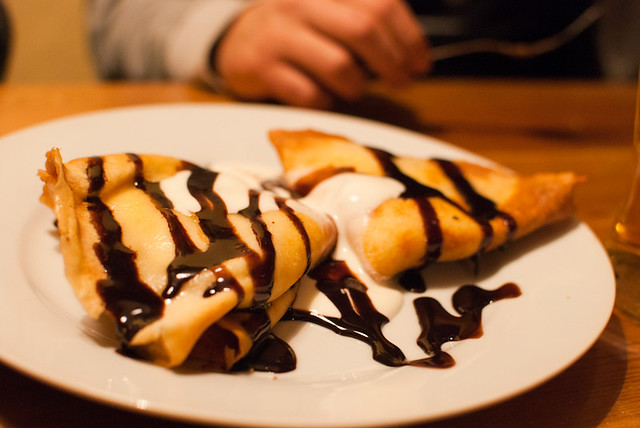Krakow is one of the most fascinating places I have ever seen, where the ancient clashes with the slick. The food is cheap, the beer is decent, and the vodka flows freely. What’s not to like?
It was foggy when I arrived in Krakow. It was early in the morning, and the streets were empty. Krakow gets livelier once everyone wakes up.
If the first moments in Krakow after you get off the platform at the main train station are any indication, Poland is doing its best to outgrow its tragic history of partitions, re-partitions, and Communism. From the platform you walk into Galleria Krakowska, a slick shopping mall where they were playing Ke$ha over the PA system when I walked in.
Good God, you can’t escape her.
Despite this, history is everywhere in Krakow, from its beautifully preserved stare miasto (Old City) to sites further afield.
Two hours away by train is Oświęcim, home of the Auschwitz concentration camp. The scale of it cannot be conveyed in photos. Little can be written about the site that does it justice.
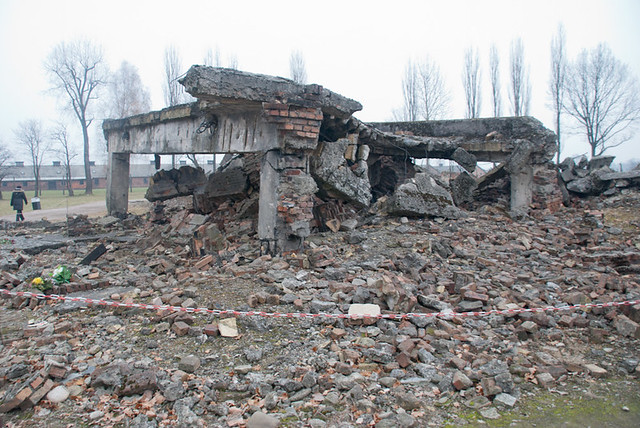
Remains of gas chamber #4 which was destroyed in a prisoner revolt
It was the most sobering tour I ever did.
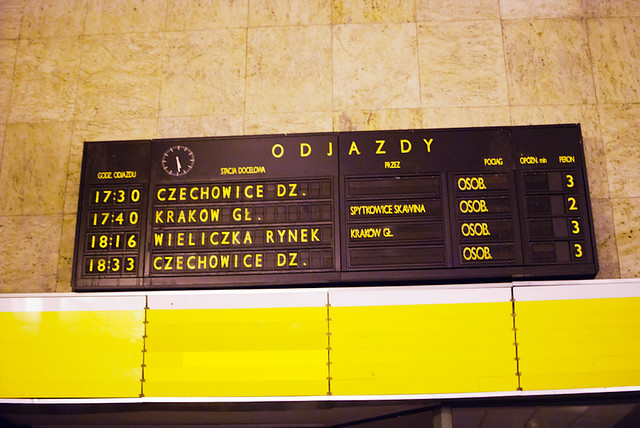
Departure board at Oświęcim station
Polish railways are a mishmash of sparkling-new high speed trains on electrified tracks and creaky coaches rattling back and forth until their wheels give out–it all depends on where you are.
When I sat down for this plate of pierogi (the Polish dumpling*), a friendly Pole speaking flawless English sitting across the table asked where I had come from. Poles were immensely curious as a whole, and every day a few of them would come over to chat me up.
He made his living exporting Polish labor to foreign construction sites (with the unspoken second half–Polish workers getting followed by their families into the new country). I asked him for some tips on what to eat.
“Are you looking for typical Polish food?”
Well, yeah, I had come all this way.
He paused for a second and answered “Pork chops. Fried pork chops.” He scribbled down kotlet schabowy on a piece of paper, along with vodka recommendations.
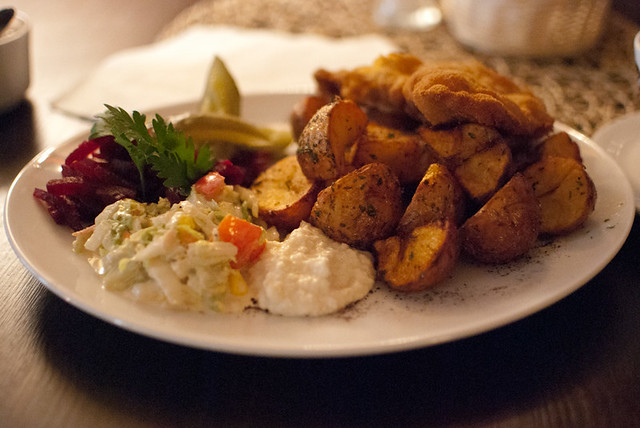
I took his word for it. The pork chop itself is on the upper right, this photo was taken to emphasize sheer volume of the potatoes.
“It’s like a religion. Every Polish family has to eat it at least once a week.”
Before we finished our lunches, he remarked that everyone needed a sense of humor (tragic history or not) and told a Polish joke. I don’t remember what it was, but I asked him if he had heard of Polandball.
He had not. I told him to Google it, and we parted ways. I hope I made his day.
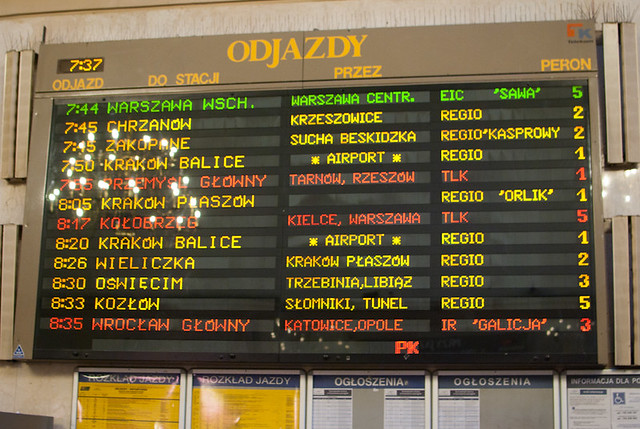
Departure board at Kraków Główny railway station
On the departure board is a train to Wieliczka, home of the one of the world’s oldest continuously operating salt mines. The Wieliczka Salt Mines are a UNESCO World Heritage Site. Miners not only excavated salt rock, they carved statues and even entire statues in the mine.

King Kazimierz III Wielki (the Great) in rock salt
After descending over 300 steps, visitors are shown only 1% of the full mine. Tour guides will tell you that it is not expressly forbidden to lick the walls–they’ll also note that virtually nothing can grow on salt rock.
I licked the wall. It was salty.
Poles are devout Catholics, and working in an underground salt mine will make you want to pray extra hard. Chapels small and large were carved into the rock salt, including a huge chapel with rock salt renditions of the Last Supper, Jesus on the cross, and chandeliers made of crystal-clear halite. You can rent it out for weddings, if you’d like.
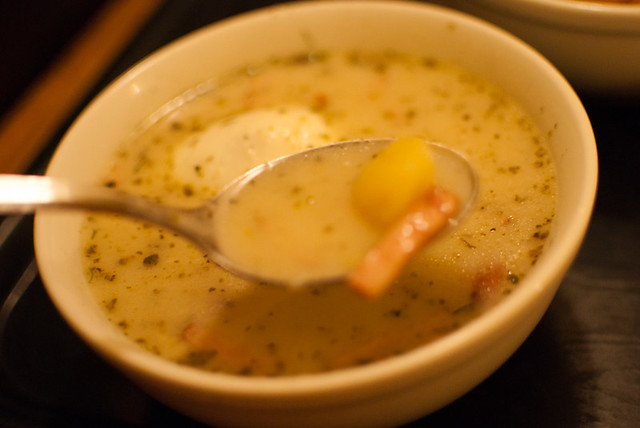
Zurek – sour rye soup. This stuff was addicting.
*I can hear you, Megan. “Dumpling” is for sake of explanation.


